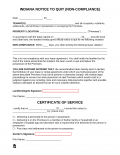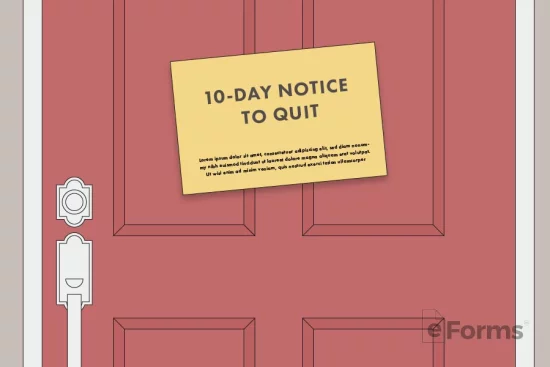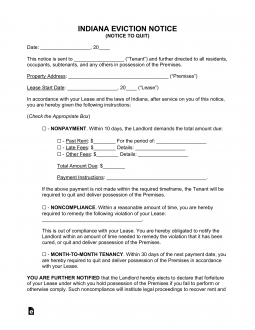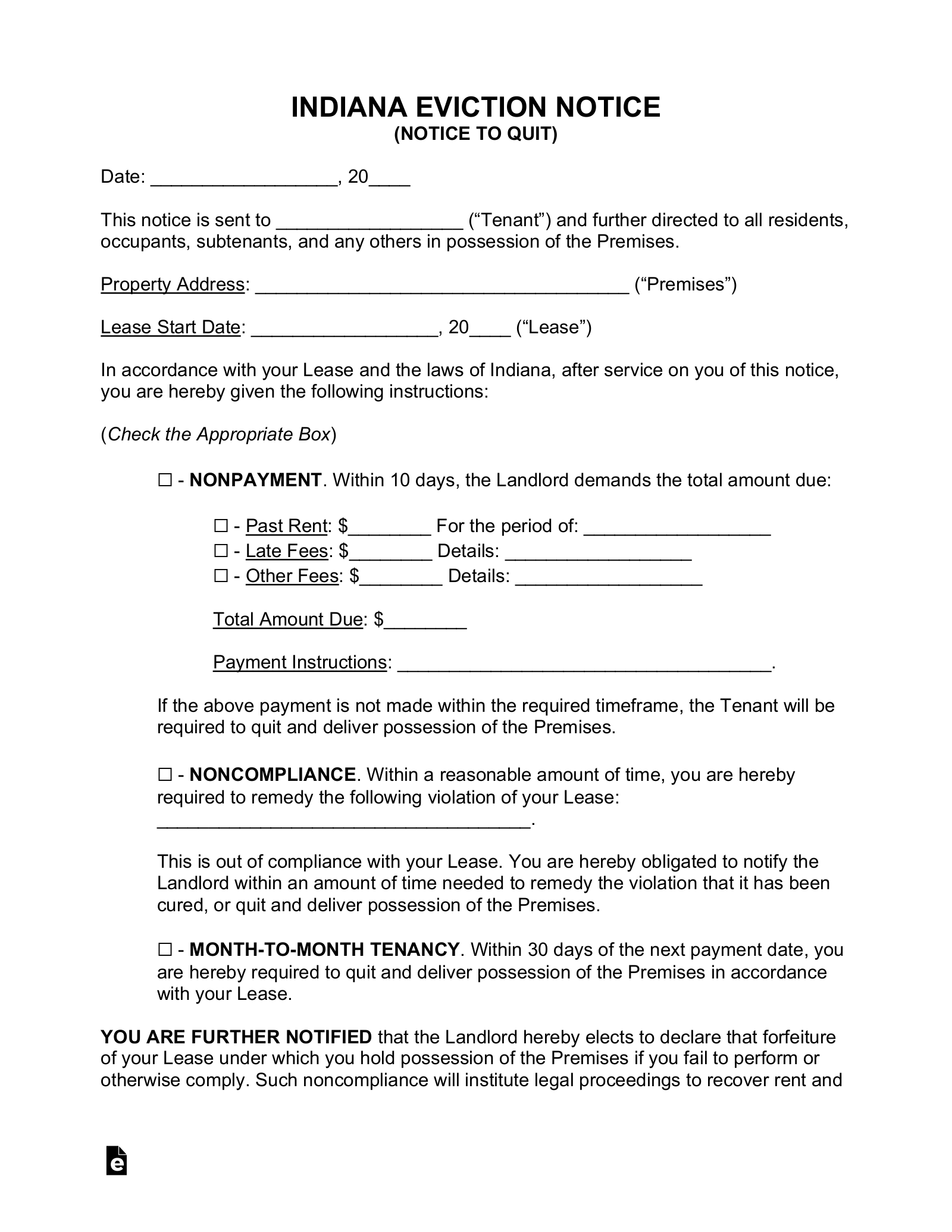Updated February 16, 2024
An Indiana eviction notice is a document that allows a landlord to notify their tenant that they have committed a lease violation. The notice to quit includes both a description of the offense and the time required to fix the issue. Most violations are because of late rent but can be for any type of lease non-compliance.
By Type (3)
 10-Day Notice to Quit (Non-Payment of Rent) – This form is used when the tenant is behind in his or her rental payments. Once the tenant has received this notice, he or she has ten days to pay the rent or vacate the property. 10-Day Notice to Quit (Non-Payment of Rent) – This form is used when the tenant is behind in his or her rental payments. Once the tenant has received this notice, he or she has ten days to pay the rent or vacate the property.
Download: PDF |
 Reasonable Time Notice to Quit (Non-Compliance) – For any lease violation other than late rent. Reasonable Time Notice to Quit (Non-Compliance) – For any lease violation other than late rent.
Download: PDF, MS Word, OpenDocument |
 30-Day Notice (Month-to-Month Tenancy) – This form is used when a landlord seeks to end a month-to-month tenancy. 30-Day Notice (Month-to-Month Tenancy) – This form is used when a landlord seeks to end a month-to-month tenancy.
Download: PDF, MS Word, OpenDocument |
Table of Contents |
Prohibited Landlord Actions
Utility Shutoff – A landlord may not interrupt a tenant’s electricity, gas, water, or other essential services unless in case of emergency, good faith repairs, or necessary construction.[4]
Changing the Locks – A landlord may not deny or interfere with a tenant’s access to or possession of their dwelling unit by changing the locks or adding a device to exclude the tenant.[5]
Court Forms
Notice for Remote Hearing (Trial) – Sample form that is to be used when requesting a hearing date from the court.
Small Claims Complaint (view sample) – Used by the landlord (petitioner) to file an eviction lawsuit against a tenant.
Repayment Plan (BEFORE a case is filed) – Use as a template when making an agreement with a tenant who cannot pay rent before the case is filed.
Repayment Plan (AFTER a case is filed) – Use as a template when making an agreement with a tenant who cannot pay rent after the case is filed.
Request for Case Status Update – For either party to obtain an update on the lawsuit.
How to Evict a Tenant (3 steps)
1. Provide Eviction Notice to Tenant

Before evicting a tenant, the landlord must give the tenant a chance to move out or if the tenant has failed to pay rent, to pay the full amount owed. Landlord must provide notice to the tenant with the request:
If the tenant is committing waste (destroying the property), the landlord does not need to provide notice in order to commence the eviction process.
2. File Complaint with Local Court
If the tenant fails to respond to the notice and remains at the premises, the landlord can file an action in the Local Court to evict the tenant, starting with the Complaint Form.
The exact filing fee for eviction varies by county and type of filing. For example:


